Did you know that Google handles approximately 3.8 million searches per minute? That’s a staggering 228 million searches every hour, according to Internet Live Stats. With such dominance in the search engine market, it’s no wonder that some users are seeking alternatives, particularly those looking for a more conservative-leaning or unbiased search experience. In this article, we’ll explore the top 10 conservative search engines that offer a different perspective on web searches.
What Makes a Search Engine Conservative?
You might be wondering, “What exactly is a conservative search engine?” Let’s break it down:
1. Emphasis on privacy and data protection
2. Unbiased or conservative-leaning search results
3. Transparency in ranking algorithms
4. Focus on free speech and diverse viewpoints
Now, let’s explore our top 10 list of conservative search engines:
- DuckDuckGo
- Brave Search
- Presearch
- StartPage
- Swisscows
- Gibiru
- Mojeek
- Conservapedia
- GoodGopher
- Yippy
Top 10 Conservative Search Engines: In-Depth Overview
The search for alternatives to mainstream search engines has led to the rise of conservative-leaning options. These search engines prioritize privacy, unbiased results, and diverse viewpoints, catering to users seeking a different online experience. Let’s explore each of these alternatives in detail.
1. DuckDuckGo: Privacy Pioneer

While not explicitly conservative, DuckDuckGo has become a favorite among privacy-conscious users across the political spectrum. Its commitment to not tracking user data aligns with conservative values of personal privacy and limited government oversight.
Key Features:
– No personal data collection
– Unbiased search results
– Available as a browser extension
2. Brave Search: Bold Alternative
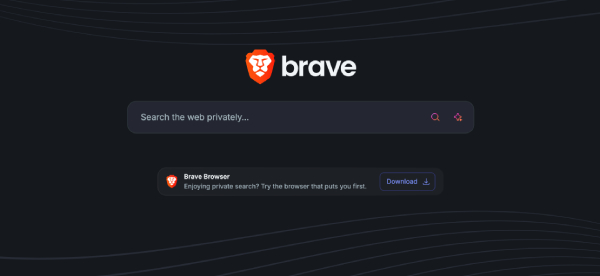
Brave, known for its privacy-focused browser, has launched its own search engine. It offers a fresh perspective on search, with a commitment to independence from big tech.
Key Features:
– Built-in ad and tracker blocking
– Transparent ranking system
– Integration with Brave browser
3. Presearch: Decentralized Discovery

Presearch takes a unique approach by using blockchain technology to create a decentralized search engine. This aligns with conservative principles of decentralization and free market competition.
Key Features:
– Rewards users with cryptocurrency for searches
– Community-driven development
– Emphasis on user privacy
4. StartPage: Google’s Private Twin
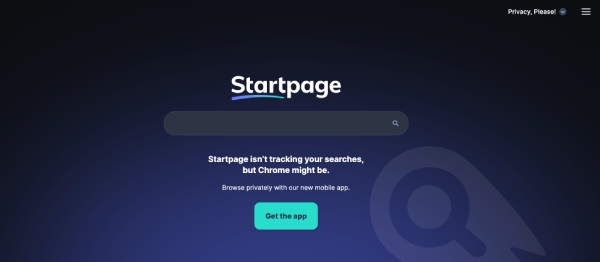
StartPage offers Google search results but with added privacy protection. It’s an excellent option for those who appreciate Google’s search capabilities but are concerned about data collection.
Key Features:
– Anonymous viewing of websites
– No recording of IP addresses or personal data
– Customizable privacy settings
5. Swisscows: Family-Friendly Searches

Swisscows prides itself on being a family-friendly, privacy-safe search engine. Its conservative values are reflected in its content filtering and data practices.
Key Features:
– Semantic data recognition for improved results
– No storage of personal data or search history
– Built-in adult content filter
6. Gibiru: Uncensored Information
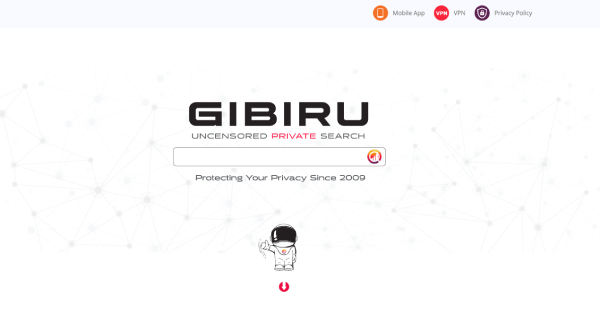
Gibiru markets itself as “Uncensored Private Search,” appealing to users who feel that mainstream search engines may be filtering or censoring certain viewpoints.
Key Features:
– Claims to provide uncensored search results
– Offers anonymous browsing through a proxy server
– No logging of user data
7. Mojeek: Independent Index
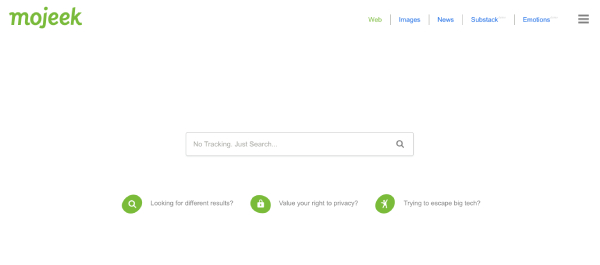
Mojeek stands out by using its own web index rather than relying on results from larger search engines. This independence appeals to users looking for truly alternative results.
Key Features:
– Unbiased, crawler-based results
– Strong privacy policy with no user tracking
– Based in the UK with servers in privacy-friendly jurisdictions
To better understand how these search engines compare, let’s look at a quick comparison table:
| Search Engine | Privacy Focus | Own Index | Cryptocurrency Rewards | Family-Friendly Filter |
| DuckDuckGo | High | No | No | Optional |
| Brave Search | High | Yes | No | Optional |
| Presearch | High | Partial | Yes | No |
| StartPage | High | No | No | Optional |
| Swisscows | High | Yes | No | Yes |
| Gibiru | High | No | No | No |
| Mojeek | High | Yes | No | Optional |
8. Conservapedia: Encyclopedia Alternative

While not a traditional search engine, Conservapedia offers a conservative alternative to Wikipedia, with a search function for its content.
Key Features:
– Conservative perspective on various topics
– User-contributed content with editorial oversight
– Integrated web search powered by other engines
9. GoodGopher: Conservative News Search
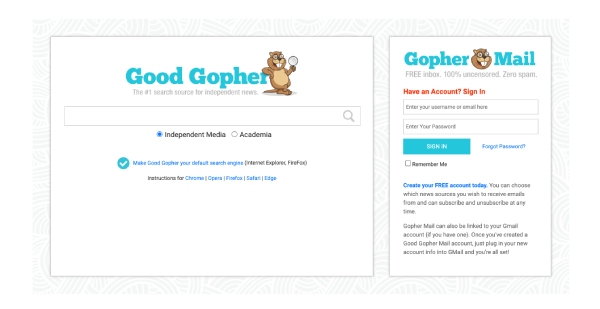
GoodGopher specializes in searching independent media and conservative news sources, appealing to users looking for alternative viewpoints.
Key Features:
– Focuses on independent and alternative media sources
– Categorizes results by mainstream, independent, and government sources
– No personal data collection
10. Yippy: Family-Friendly Metasearch
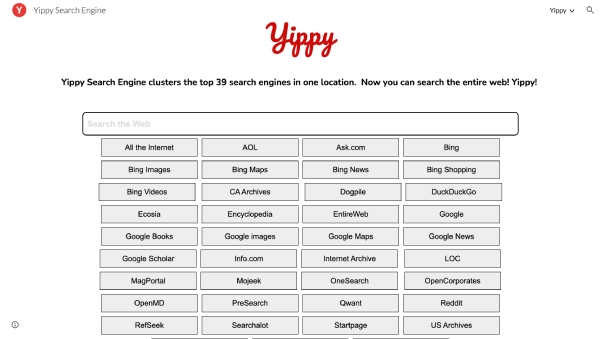
Yippy is a metasearch engine that aggregates results from multiple sources while offering family-friendly filtering.
Key Features:
– Cloud-based content filtering
– No user data stored or sold
– Groups results into easy-to-navigate categories
Implementing Conservative Search
Now that we’ve explored these options, you might be wondering how to integrate them into your online experience. Here are some tips:
1. Set your preferred conservative search engine as your browser’s default
2. Install browser extensions for easy access to multiple search options
3. Use these engines alongside mainstream options for a balanced perspective
Balancing Privacy and Functionality
Remember, while these search engines offer increased privacy and potentially less biased results, they may not always match the breadth and depth of larger search engines. It’s about finding the right balance for your needs.
The Future of Search
As we wrap up our exploration of conservative search engines, let’s consider the broader implications for the future of online search and information discovery.
Diversity in Digital Ecosystems
The existence and growing popularity of these alternative search engines highlight a crucial trend: users are demanding more choice and control over their digital experiences. This diversity in the search engine market can lead to:
1. Increased innovation in search technologies
2. Greater emphasis on user privacy across all platforms
3. More transparent algorithms and ranking systems
Conclusion
In conclusion, whether you’re looking for a conservative Google alternative or simply want to explore different search options, these ten search engines offer a range of choices. From privacy-focused platforms to those emphasizing unbiased results, there’s likely an option that aligns with your values and needs.
As we navigate the vast ocean of online information, having diverse tools at our disposal becomes increasingly important. By understanding and utilizing these alternative search engines, we can gain a more comprehensive view of the digital landscape.
What’s your take on these conservative search engines? Have you tried any of them? Remember, in the world of online information, knowledge is power – and having access to diverse sources of that knowledge is key to forming well-rounded opinions and making informed decisions.
